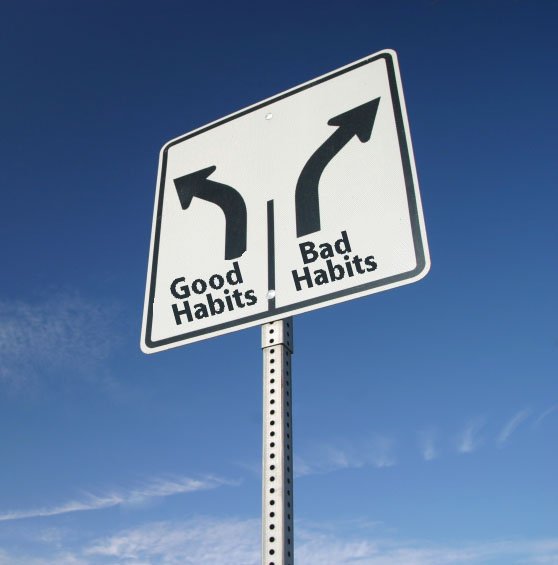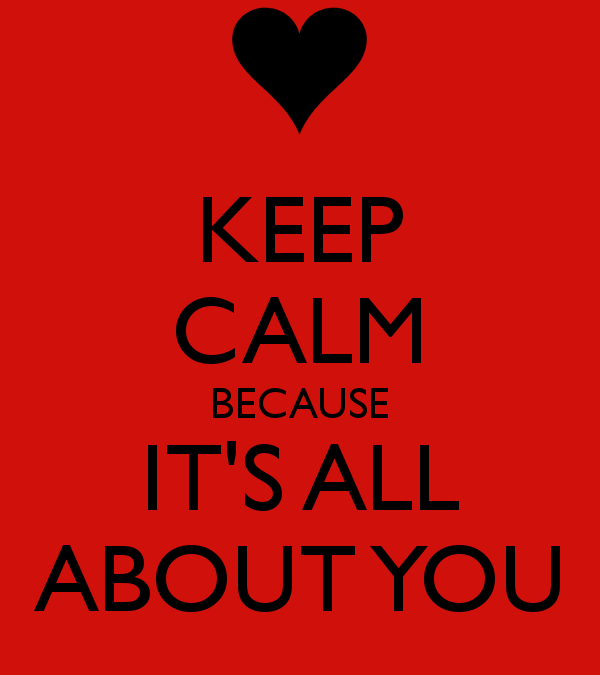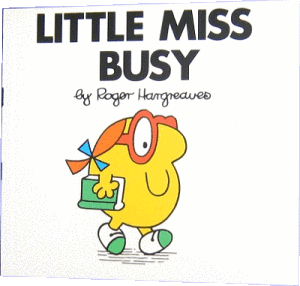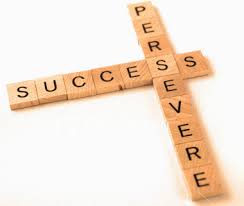
by Julia Felton | Aug 6, 2013
So what habits do the rich do every day that the poor don’t?
Tom Corley, on his website RichHabits.net, outlines a few of the differences between the habits of the rich and the poor:
- 70% of wealthy eat less than 300 junk food calories per day. 97% of poor people eat more than 300 junk food calories per day. 23% of wealthy gamble. 52% of poor people gamble.
- 80% of wealthy are focused on accomplishing some single goal. Only 12% of the poor do this.
- 76% of wealthy exercise aerobically 4 days a week. 23% of poor do this.
- 63% of wealthy listen to audio books during commute to work vs. 5% for poor people.
- 81% of wealthy maintain a to-do list vs. 19% for poor.
- 63% of wealthy parents make their children read 2 or more non-fiction books a month vs. 3% for poor.
- 70% of wealthy parents make their children volunteer 10 hours or more a month vs. 3% for poor.
- 80% of wealthy make hbd calls vs. 11% of poor
- 67% of wealthy write down their goals vs. 17% for poor
- 88% of wealthy read 30 minutes or more each day for education or career reasons vs 2% for poor.
- 6% of wealthy say what’s on their mind vs. 69% for poor.
- 79% of wealthy network 5 hours or more each month vs. 16% for poor.
- 67% of wealthy watch 1 hour or less of TV. every day vs. 23% for poor
- 6% of wealthy watch reality TV vs. 78% for poor.
- 44% of wealthy wake up 3 hours before work starts vs.3% for poor.
- 74% of wealthy teach good daily success habits to their children vs. 1% for poor.
- 84% of wealthy believe good habits create opportunity luck vs. 4% for poor.
- 76% of wealthy believe bad habits create detrimental luck vs. 9% for poor.
- 86% of wealthy believe in life-long educational self-improvement vs. 5% for poor.
- 86% of wealthy love to read vs. 26% for poor
Which ones resonated for you? I’m off to 3 empty my kitchen of junk and to start working out. Not looking forward to that!!.
Julia Felton (aka The Business Wrangler) is the founder of Business HorsePower. Business leaders, entrepreneurs and executives hire her to accelerate their business performance by harnessing the energy of their people to work more collaboratively together. By aligning purpose with actions the team achieves exponential results as everyone starts pulling in the same direction.
Julia believes that business is a force for good and through designing purpose-driven businesses that leverage the laws of nature, and the herd, you can create businesses founded on the principles of connection, collaboration and community that make a significant impact in the world.

by Julia Felton | Jul 30, 2013
Money—the lack of it, the fear of losing it, the dread of not having enough—tops the list of concerns of many people these days. That’s because the economy is in bad shape, you may say. But didn’t those fears predate today’s bad news? And even when the economy is flourishing, we are still a debt-ridden nation.
What’s going on?
Our ability to create sufficient money in our lives is anchored by our financial attitudes, beliefs, and behaviours—what you believe can be true for your life. When these beliefs and values remain unexamined, they can get in the way of a sense of wellbeing and security. Here are a few of the more common attitudes that get in people’s way:
I Don’t Like Money; I Don’t Care about Money
This attitude is held by people at all income levels. It can have its origin in religious beliefs, political beliefs or guilt at inherited privilege. Pam is a child of the 60’s who says she doesn’t really like money. She never allows herself to have what she truly wants and always buys the cheapest version. She’s a landscape designer, but regularly under-bills her clients. A classic under-earner, she sometimes relies on credit cards for basic expenses such as rent.
I’m Clueless about Money
Doug rarely balances his bank statements, doesn’t know how much money he has or spends and, as a result, finds himself saddled with late fees and bounced check charges. People like Doug may believe that they’re not skilled enough to handle their money or may think that money is uncouth. Doug makes a good income, but his unwillingness to pay attention to it also makes him vulnerable to theft, fraud, debt he can’t afford and bankruptcy.
I Don’t Have Enough Money
Sarah worries often about money. Although her income is twice that of her friends, she talks to them often about how hard it is to pay the bills. At the root of Sarah’s fear may be a belief that she can’t take care of herself or that the world is a harsh place with scarce resources. People like Sarah sometimes fear that they will lose everything and end up homeless.
I’ll Never Have Enough
Mike also feels that he doesn’t have enough money, but rather than feeling that the world is a harsh place for everyone, he believes it is especially hard for him. Other people will do just fine, but he’ll always be poor. If you try to encourage him, he’ll list the many strikes against him. People like Mike are often under-earners, blind to the opportunities that are available.
If any of these attitudes resonate, you may want to explore them with compassion for yourself and support. As you bring awareness to self-limiting beliefs and adopt a more empowering stance, you expand into a larger sense of personal freedom. Also, healing our personal relationship with money helps build a solid foundation for weathering economic storms.
And don’t forget there is still time to claim your place at our upcoming Master Your Money Mindset MasterClass. You can find out all about the event here at www.masteryourmoneymindset.co.uk
Julia Felton (aka The Business Wrangler) is the founder of Business HorsePower. Business leaders, entrepreneurs and executives hire her to accelerate their business performance by harnessing the energy of their people to work more collaboratively together. By aligning purpose with actions the team achieves exponential results as everyone starts pulling in the same direction.
Julia believes that business is a force for good and through designing purpose-driven businesses that leverage the laws of nature, and the herd, you can create businesses founded on the principles of connection, collaboration and community that make a significant impact in the world.

by Julia Felton | Jul 17, 2013
Today, I’d thought I would share some simple rules about money that have helped me in my life. The main thing to realise is the paradigm of “How You Do Money Is How You Do Everything”. I hope you find them useful.
- It is infinite – no limits except those placed by the mind. No limit to energy in world – can’t be restricted or controlled
- Craves Abundance – attracted to those that think big. Magnetised by thought that there is enough to go around
- Despise Scarcity – avoid those who think from win/lose mentality. If believe in short supply or difficult to receive then will avoid people who think small
- Loves Value – magnetised by creation of value in the universe. Goes where value created because creation is energy. Attracted by us creating value for others
- Avoids entitlement and complacency – no one deserves money – always moving to place where it is respected
- Only one job and that is to serve you – purpose to simply move to where I am attracted most and can grow
- One goal is to replicate – purpose to reproduce and grow in order to bring more energy to the universe. Created and replicated through value creation.
Money is the energy of evolution!
Those who create value for others in the world find money in their lives those who don’t keep finding that money eludes them
Remember that money acts as we believe it will – YOU decide its fate. If you fear money you can crush its ability to survive. If get to know and get into a relationship with money it will make your dreams come alive.
It can be a master or a servant to money – YOU decide
“If money is your hope for independence you will never have it. The only real security that a man will have in this world is a reserve of knowledge, experience, and ability” Henry Ford
Money will love you if you love it because money just loves being in a relationship. Are you paying attention to money or are you just ignoring it.? What type of relationship do you have with money? This was a big AHA! for me when I realised that I was ignoring money. In fact I was being damn right dis-respectful of it, and guess what, no big surprise, money did not like to hang out with me. How is your relationship with money? Do you need to change it?
If you want to change your relationship with money then I urge you to attend my free training call on 5 Areas You Must Master To Increase Your Self-Worth and Net Worth on Tuesday 30th July at 19:30 GMT. You can register for the free training call here
Julia Felton (aka The Business Wrangler) is the founder of Business HorsePower. Business leaders, entrepreneurs and executives hire her to accelerate their business performance by harnessing the energy of their people to work more collaboratively together. By aligning purpose with actions the team achieves exponential results as everyone starts pulling in the same direction.
Julia believes that business is a force for good and through designing purpose-driven businesses that leverage the laws of nature, and the herd, you can create businesses founded on the principles of connection, collaboration and community that make a significant impact in the world.

by Julia Felton | Jul 16, 2013
The following is an extract from the works of Jim Rohn, but I have included it today as it so sums up the key ingredient to success. Yes, training and going on courses is great but all the best strategies in the world will not help you if you don’t have the right mindset for success. Master your mindset and become the best YOU that you can be and everything else will fall into place because success is an inside out job.
From the Desk of Jim Rohn
Of all the things that can have an effect on your future, I believe personal growth is the greatest. We can talk about sales growth, profit growth, asset growth, but all of this probably will not happen without personal growth. It’s really the open door to it all. In fact I’d like to have you memorize a most important phrase. Here it is, “The major key to your better future is YOU.” Let me repeat that. “The major key to your better future is YOU.” Put that someplace you can see it every day, in the bathroom, in the kitchen, at the office, anywhere where you can see it every day. The major key to your better future is YOU. Try to remember that every day you live and think about it. The major key is YOU.
Now, there are many things that will help your better future. If you belong to a strong, dynamic, progressive company, that would help. If the company has good products and services you are proud of, that would certainly help. If there were good sales aids, that would help, good training would certainly help. If there is strong leadership, that will certainly help. All of these things will help, and of course, if it doesn’t storm, that will help. If your car doesn’t break down, that will help. If the kids don’t get sick, that will help. If the neighbors stay halfway civil, that will help. If your relatives don’t bug you, that will help. If it isn’t too cold, if it isn’t too hot, all those things will help your better future. And if prices don’t go much higher and if taxes don’t get much heavier, that will help. And if the economy stays stable, those things will all help. We could go on and on with the list; but remember this, the list of things that I’ve just covered and many more—all put together—play a minor role in your better future.
Challenge to Succeed
The major key to your better future is you. Lock your mind onto that. This is a super-important point to remember. The major key is you. A friend of mine has always answered when asked, “How do you develop an above-average income?” by saying, “Simple. Become an above-average person. Work on you.” My friend says, “Develop an above-average handshake.” He says, “A lot of people want to be successful, and they don’t even work on their handshake. As easy as that would be to start, they let it slide. They don’t understand.” My friend says, “Develop an above-average smile. Develop an above-average excitement. Develop an above-average dedication. Develop an above-average interest in other people.” He says, “To have more, become more.” Remember; work harder on yourself than you do on your job. For a long time in my life, I didn’t have this figured out.
Strangely enough, with two different people in the same company, one may earn an extra $100 a month, and the other may earn a $1,000. What could possibly be the difference? If the products were the same, if the training was the same, if they both had the same literature, the same tools. If they both had the same teacher, the same compensation plan, if they both attended the same meetings, why would one person earn the $100 per month and the other person earn the $1,000? Remember, here is the difference: The difference is personal—inside, not outside, inside.
You see the real difference is inside you. In fact, the difference IS you. Someone once said, “The magic is not in the products. The magic is not in the literature. The magic is not in the film. There isn’t a magic meeting, but the magic that makes things better is inside you.” And personal growth makes this magic work for you.
The magic is in believing. The magic is in daring. The magic is in trying. The real magic is in persevering. The magic is in accepting. It’s in working. The magic is in thinking. There is magic in a handshake. There is magic in a smile. There is magic in excitement and determination. There is real magic in compassion and caring and sharing. There is unusual magic in strong feeling. You see, all that comes from inside, not outside. So the difference is inside you. The real difference is you. You are the major key to your better future.
Julia Felton (aka The Business Wrangler) is the founder of Business HorsePower. Business leaders, entrepreneurs and executives hire her to accelerate their business performance by harnessing the energy of their people to work more collaboratively together. By aligning purpose with actions the team achieves exponential results as everyone starts pulling in the same direction.
Julia believes that business is a force for good and through designing purpose-driven businesses that leverage the laws of nature, and the herd, you can create businesses founded on the principles of connection, collaboration and community that make a significant impact in the world.

by Julia Felton | Jun 19, 2013
Time is the great equalizer. Everybody gets the same amount: 24 hours in a day, 60 minutes in an hour. We can’t save time or accumulate or rearrange it. We can’t turn it off or on. It can’t be replaced.
But these days, it seems as if the lament of not having enough time has become a national anthem. Everywhere people find themselves constantly in a rush, over-booked and over-scheduled with no time off. Life is accompanied by the ongoing stress of not enough time. And sometimes doing too much and being too busy can be a way of numbing feelings or disguising depression or anger.
Though it may not always seem so, how we fill our time and how we spend it is our choice. Answer the following questions to discover if you’re caught up in the “too-busy” cycle.
- I constantly find myself doing “urgent” things and trying to catch up.
- I allow myself to drift into obligations when I don’t know how much time or energy they’ll require.
- I find myself running from when I get up in the morning until I go to bed at night. I’m always tired and never feel like I accomplished enough.
- I seldom schedule a day off for myself and when I do, I tend to fill it with activities.
- I don’t make time for “self-care” activities: physical exercise, nurturing or “pampering” myself, cultural stimulation, spiritual well-being, learning something new, playing, or simply doing nothing.
- I seldom have time to do the things I really love.
- My work and project areas are cluttered with “I’ll look at this later” stacks and “to-do” piles.
- I often miscalculate how long certain activities will take.
- I often miss deadlines or work long hours to meet a deadline.
- I respond to interruptions such as phone calls, faxes, email, beepers and pagers, and allow them to take me off track.
- I try to keep things in my head rather than making lists. If I do make a daily “to-do” list, it’s impossible to complete in a day.
- I tend to move from one urgent thing to the next, rather than working toward specific goals and objectives.
- I find myself constantly wishing I had more time or projecting an imaginary future when I have more time, making comments such as “as soon as…” or “next year…”
- I spend time running errands and rushing because I didn’t plan well enough.
- I spend time doing things I could pay someone else to do.
- I often do things because I “should,” or continue to do things that no longer fit who I am.
- Other people complain that my schedule doesn’t allow enough time for them.
Are you too busy? If so, think about three things that you can let go of and start saying No to things. No-one will value your time unless you value your time. Recently, I had to let go of a client that was draining me of energy and being demanding of my time. Sure it was a hard decision but once I released that client a couple of my ideal clients turned up instead. Funny how that works!
If you want to stop being busy then why not apply for one of the limited number of strategy sessions I offer each month, so that I can help you grab control and create a Joined Up Business.
Julia Felton (aka The Business Wrangler) is the founder of Business HorsePower. Business leaders, entrepreneurs and executives hire her to accelerate their business performance by harnessing the energy of their people to work more collaboratively together. By aligning purpose with actions the team achieves exponential results as everyone starts pulling in the same direction.
Julia believes that business is a force for good and through designing purpose-driven businesses that leverage the laws of nature, and the herd, you can create businesses founded on the principles of connection, collaboration and community that make a significant impact in the world.

by Julia Felton | May 17, 2013
“The most precious asset of all is something that, if lost, can only be restored not by words, but by actions; that is the asset of trust and confidence.“ — British Prime Minister Gordon Brown on CNN
Never before has trust been a more crucial asset or a more career-critical skill for individuals or organizations than it is right now. Trust—more than Euros, Yen, or dollars—is the new currency of business. Trust is not something to be taken for granted; it is something to be built up, valued, and carefully preserved. However, all of us will undoubtedly deal with broken trust at some time—personally and professionally.
The idea that trust cannot be restored once lost is a myth. Though it may be difficult, in most cases, lost trust can be restored—and often even enhanced! Prioritizing trust—actively seeking to establish it, grow it, restore it, and wisely extend it—will bring personal and organizational dividends that far exceed any other path.
Join Stephen M. R. Covey at the first ever Trust Conference to learn what you can do to restore trust in your most critical relationships
Julia Felton (aka The Business Wrangler) is the founder of Business HorsePower. Business leaders, entrepreneurs and executives hire her to accelerate their business performance by harnessing the energy of their people to work more collaboratively together. By aligning purpose with actions the team achieves exponential results as everyone starts pulling in the same direction.
Julia believes that business is a force for good and through designing purpose-driven businesses that leverage the laws of nature, and the herd, you can create businesses founded on the principles of connection, collaboration and community that make a significant impact in the world.

by Julia Felton | Mar 27, 2013
How often have you invested in a personal growth training to try to improve something you felt you were not good at? Perhaps it was marketing, sales, personnel management or public speaking. For most of us, trying to improve our weak areas in operating our business or managing our department comes with the territory. Whatever the area, we feel as if we are required to do battle with what we don’t do well.
As it turns out, the majority of people around the world feel this way. In their groundbreaking book Now, Discover Your Strengths, authors Marcus Buckingham and Donald Clifton say that across all ages and cultures, people are more concerned about their weaknesses than their strengths. We believe that our weaknesses matter more in holding us back than our strengths matter in advancing us.
That’s nonsense, say the authors—widely held nonsense, but nonsense nonetheless. In their provocative theory, they suggest that the better strategy is to play to your strengths, building upon your core talents, and work around your weaknesses. You can work to add skills and knowledge to increase your performance in any area, but unless you are building upon one of your innate talents, your efforts won’t produce exceptional results—some results, yes, but not dramatic improvement.
“Unless you have the necessary talent, your improvements will be modest,” write Buckingham and Clifton. “You will be diverting most of your energy toward damage control and very little toward real development.”
The expression “damage control” is their term for trying to minimize your weaknesses—the areas where your lack of talent actually get in the way of your performance.
“Managing Around” a Weakness
Instead of trying to overcome your weaknesses by brute force—and at the expense of putting the same energy into growing your strengths—they offer five strategies for what they call “managing around” a weakness:
- Get a little better at it. In some cases, your weakness is only moderately impeding your peak performance in other areas. If so, then maybe damage control is the right solution.
- Develop a support system. This is the proverbial string tied around the finger to remind you of something. Whether it is time management systems for those with a talent for adaptability but not discipline, or a scheduled walk in the park for disciplined folks who neglect self-care, you can often blunt the effects of your weaknesses through such structured inputs.
- Study your prospects. If your skills tend toward the analytical and away from such talents as wooing clients or dealing directly with confrontation, then you probably ought not be spending a lot of time in sales. But when you do have to sell something—such as one of your ideas—approach the problem analytically. Rather than agonize over your lack of salesmanship, study your prospects, dig into what makes them tick and what ideas they’ve accepted in the past, and let your enthusiasm for your ideas do the talking.
- Find a partner. This may be the best approach for small business people and “solo” practitioners. Go into partnership discussions with a clear-eyed understanding of the strengths you bring, and the strengths you need from your partner. Don’t be shy about your strengths—the whole point of this is to create a world in which you get to do what you are really good at. And be open-minded about what a partnership looks like. For some solo practitioners, an administrative assistant or a marketing consultant could be all the partnering you need.
- Just (Don’t) Do It. The last option, say Buckingham and Clifton, is just don’t do the things you are weak at. In a corporate setting you might get away with this, particularly if you are a high-performer in the areas of your strengths. If you’re a small business owner and your organizational chart tends to have “me” written in most every box, not doing something may not seem like much of a choice. But keep it as a goal and continue to work toward the day when you can contribute to your business exclusively from the place of your highest strengths.
Taking your Talent Dynamics profile is a great way to help you figure out where your strengths lie and people that work with their innate talents are generally more productive, efficient, happy and less stressed, What will you do today to help you focus on developing your strengths?
Julia Felton (aka The Business Wrangler) is the founder of Business HorsePower. Business leaders, entrepreneurs and executives hire her to accelerate their business performance by harnessing the energy of their people to work more collaboratively together. By aligning purpose with actions the team achieves exponential results as everyone starts pulling in the same direction.
Julia believes that business is a force for good and through designing purpose-driven businesses that leverage the laws of nature, and the herd, you can create businesses founded on the principles of connection, collaboration and community that make a significant impact in the world.

by Julia Felton | Mar 20, 2013
Habits—good or bad—are difficult to break. Aristotle said it best: “We are what we repeatedly do. Excellence is not an act…it’s a habit.”
An excerpt from Habits Die Hard by Mac Anderson & John J. Murphy
I am your constant companion.
I am your greatest asset or heaviest burden.
I will push you up to success or down to disappointment.
I am at your command.
Half the things you do might just as well be turned over to me.
For I can do them quickly, correctly, and profitably.
I am easily managed; just be firm with me.
Those who are great, I have made great.
Those who are failures, I have made failures.
I am not a machine, though I work with the precision of a
machine and the intelligence of a person.
You can run me for profit, or you can run me for ruin.
Show me how you want it done. Educate me. Train me.
Lead me. Reward me.
And I will then…do it automatically.
I am your servant.
Who am I?
I am a habit.
Think about it. There is nothing that will shape your destiny more than your habits. Why is that true? Because you are invariably the sum of the choices you will make in your life. And those choices are greatly influenced by your habits…good and bad.
You may have heard the quote: “When the student is ready, the teacher will appear.” And so it is…if you’re ready to change some habits that might be holding you back in your relationships, your career or your life, then please contact me
Julia Felton (aka The Business Wrangler) is the founder of Business HorsePower. Business leaders, entrepreneurs and executives hire her to accelerate their business performance by harnessing the energy of their people to work more collaboratively together. By aligning purpose with actions the team achieves exponential results as everyone starts pulling in the same direction.
Julia believes that business is a force for good and through designing purpose-driven businesses that leverage the laws of nature, and the herd, you can create businesses founded on the principles of connection, collaboration and community that make a significant impact in the world.

by Julia Felton | Mar 17, 2013
There are many ways to avoid success in life, but the most sure-fire just might be procrastination. Procrastinators sabotage themselves. They put obstacles in their own path. They actually choose paths that hurt their performance. So would why people do this? It’s a question that I have been pondering on a lot lately as I actively observe myself sabotaging parts of my business.
Two of the world’s leading experts on procrastination: Joseph Ferrari, Ph.D., associate professor of psychology at De Paul University in Chicago, and Timothy Pychyl, Ph.D., associate professor of psychology at Carleton University in Ottawa share their thoughts.
- Twenty percent of people identify themselves as chronic procrastinators. For them procrastination is a lifestyle, albeit a maladaptive one. And it cuts across all domains of their life. They don’t pay bills on time. They miss opportunities for buying tickets to concerts. They don’t cash gift certificates or checks. They file income tax returns late. They leave their Christmas shopping until Christmas eve.
- It’s not trivial, although as a culture we don’t take it seriously as a problem. It represents a profound problem of self-regulation. And there may be more of it in the U.S. than in other countries because we are so nice; we don’t call people on their excuses (“my grandmother died last week”) even when we don’t believe them.
- Procrastination is not a problem of time management or of planning. Procrastinators are not different in their ability to estimate time, although they are more optimistic than others. “Telling someone who procrastinates to buy a weekly planner is like telling someone with chronic depression to just cheer up,” insists Dr. Ferrari.
- Procrastinators are made not born. Procrastination is learned in the family milieu, but not directly. It is one response to an authoritarian parenting style. Having a harsh, controlling father keeps children from developing the ability to regulate themselves, from internalizing their own intentions and then learning to act on them. Procrastination can even be a form of rebellion, one of the few forms available under such circumstances. What’s more, under those household conditions, procrastinators turn more to friends than to parents for support, and their friends may reinforce procrastination because they tend to be tolerant of their excuses.
- Procrastination predicts higher levels of consumption of alcohol among those people who drink. Procrastinators drink more than they intend to—a manifestation of generalized problems in self-regulation. That is over and above the effect of avoidant coping styles that underlie procrastination and lead to disengagement via substance abuse.
- Procrastinators tell lies to themselves. Such as, “I’ll feel more like doing this tomorrow.” Or “I work best under pressure.” But in fact they do not get the urge the next day or work best under pressure. In addition, they protect their sense of self by saying “this isn’t important.” Another big lie procrastinators indulge is that time pressure makes them more creative. Unfortunately they do not turn out to be more creative; they only feel that way. They squander their resources.
- Procrastinators actively look for distractions, particularly ones that don’t take a lot of commitment on their part. Checking e-mail is almost perfect for this purpose. They distract themselves as a way of regulating their emotions such as fear of failure.
- There’s more than one flavor of procrastination. People procrastinate for different reasons. Dr. Ferrari identifies three basic types of procrastinators:
- arousal types, or thrill-seekers, who wait to the last minute for the euphoric rush.
- avoiders, who may be avoiding fear of failure or even fear of success, but in either case are very concerned with what others think of them; they would rather have others think they lack effort than ability.
- decisional procrastinators, who cannot make a decision. Not making a decision absolves procrastinators of responsibility for the outcome of events.
- There are big costs to procrastination. Health is one. Just over the course of a single academic term, procrastinating college students had such evidence of compromised immune systems as more colds and flu, more gastrointestinal problems. And they had insomnia. In addition, procrastination has a high cost to others as well as oneself; it shifts the burden of responsibilities onto others, who become resentful. Procrastination destroys teamwork in the workplace and private relationships.
- Procrastinators can change their behaviour—but doing so consumes a lot of psychic energy. And it doesn’t necessarily mean one feels transformed internally.
Can you determine from this article why you procrastinate? For me self-regulation and planning are the keys, as well as having the perseverance to continue against the odds. One thing I do know is that I don’t procrastinate with tasks I just love doing. It’s just the things that I hate, so why do them? Increasingly to avoid procrastination I am seeking ways to focus on the things I excel at in business and outsource and delegate those tasks that take me out of flow and are a challenge.
So how do you find out the tasks that you are best suited to do? Take a Talent Dynamics test and find out. It’s helped me so much.
Julia Felton (aka The Business Wrangler) is the founder of Business HorsePower. Business leaders, entrepreneurs and executives hire her to accelerate their business performance by harnessing the energy of their people to work more collaboratively together. By aligning purpose with actions the team achieves exponential results as everyone starts pulling in the same direction.
Julia believes that business is a force for good and through designing purpose-driven businesses that leverage the laws of nature, and the herd, you can create businesses founded on the principles of connection, collaboration and community that make a significant impact in the world.

by Julia Felton | Mar 6, 2013
I recently read this great blog my John Maxwell and decided to share it with you as it talks about a subject really close to my heart right now – Perseverance. Perseverance is a trait that all great leaders have and it is what keeps them going when times get tough. Yet all too often I personally find myself slacking off at these times. I’ve been doing a lot of work to try and figure out why and what is going on. Sometimes the results are tough to take, but listen to them I must if I am to continue to grow my business.
“Perseverance begins with the right attitude – an attitude of tenacity. But the desire to persevere alone isn’t enough to keep most people going when they are tired or discouraged. Perseverance is a trait that can be cultivated. And the initial step to developing it is to eliminate its five greatest enemies.”
Perseverance requires determination. If you take the time and effort to cultivate tenacity, you can achieve the impossible. However, there are endless temptations, false beliefs, and distractions that can lead to abandoning what once seemed of the utmost importance.
According to Beyond Talent, we must eliminate the five greatest enemies of perseverance. Eliminating the following five things will bring greater chance of success:
1. A lifestyle of giving up
“Talent without perseverance never comes to full fruition. Opportunities without persistence will be lost. There is a direct correlation between perseverance and potential. If you have a habit of giving up, you need to overcome it to be successful.”
There is no doubt that giving up is the easy thing to do in many situations. When we’re presented with opportunities, we are programmed to want to take the easy route. However, taking the difficult path will allow us to see our talent come to full fruition.
2. A wrong belief that life should be easy
“Having the right expectations going into anything is half the battle.”
It’s common to expect that life should be handed to us on a silver platter. However, expectations don’t always match reality. When faced with tough situations, we have two choices. We can either give up, or we can dig in and get down in the trenches. Perseverance is choosing the trenches.
3. A wrong belief that success is a destination
“If you think you have arrived, then you’re in trouble. As soon as you think you no longer need to work to make progress, you’ll begin to lose ground.”
Success is not a destination. Success is a path we choose to walk down each day. When we stop seizing opportunities, we hit plateaus. As leaders, we constantly have the chance to learn, grow and move forward. With a bit of perseverance, we can move beyond our “success” and through open doors.
4. A lack of resiliency
“We must not become dry, brittle, and inflexible. And we must endeavour to bounce back, no matter how we may feel.”
We can’t let discouraging moments break us. Instead, we must be resilient. By persevering through tough times and taking struggles on, we have the ability to go beyond our talent.
5. A lack of vision
“People who display perseverance keep a larger vision in mind as they toil away at their craft or profession. They see in their mind’s eye what they want to create or to do, and they keep working toward it as they labor.”
What is your vision? Let that be your guiding light as you persevere through the less than desirable moments in life. Know that through perseverance, your talent will be lifted, ultimately reaping great benefits in the end.
Overall, take the time to think through which of these enemies is hindering your ability to persevere as a leader. Once you identify these strongholds, you will be able to rise above any situation and accomplish even the loftiest goals.
Julia Felton (aka The Business Wrangler) is the founder of Business HorsePower. Business leaders, entrepreneurs and executives hire her to accelerate their business performance by harnessing the energy of their people to work more collaboratively together. By aligning purpose with actions the team achieves exponential results as everyone starts pulling in the same direction.
Julia believes that business is a force for good and through designing purpose-driven businesses that leverage the laws of nature, and the herd, you can create businesses founded on the principles of connection, collaboration and community that make a significant impact in the world.















